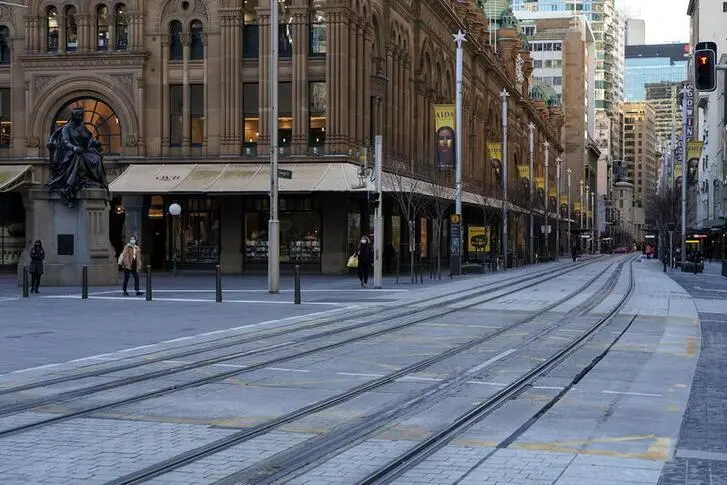PHOTO
The fact that global pandemics generally last for at least three years determines the historical truth of what occurs next. There are continuing problems with the coronavirus disease (COVID-19) that do not bode well for the near term.
Subject one is to look at the delta variant and the issue of non-vaccinated people, with their significance ahead of the upcoming Northern Hemisphere winter and next spring in mind. We’re well into our second year of this very strong pandemic, with unknown twists and turns still challenging healthcare systems globally. COVID-19 is still going strong. However, the requirement to open up and stay open is necessary in many parts of the globe due to economic requirements. But there are events causing difficulties in terms of creating the appropriate response to rebound from the pandemic versus preventing its continuance.
Just look at Australia, a country with a brilliant track record on vaccinations and specific methodologies for handling the pandemic. Yet its current crisis is intensifying, with new movement restrictions and the state of Victoria extending its lockdown. South Australia’s situation illustrates the damage done by urban outbreaks.
Once again, large-scale events, such as sporting events in the UK, challenge a possible quick recovery. Britain’s “freedom day” is turning out to be a delta variant event and must be seen as a case study in mismanagement and an inability to maintain order. The politics of human rights during a pandemic face a unique challenge in Britain because of the Brexit factor. The country’s internal politics have helped to doom its recovery. The estimates of what comes next in the UK because of government policy, including travel red lists, do not look good. The unvaccinated are increasingly becoming infected, which is obviously a global trend. How London contends with the disease, along with other Western democracies, could make or break the speed of the economic recovery.
Even with small-scale events, such as nightclubs reopening for those who are vaccinated, protocols sometimes go out of the window. The uncomfortable truth is emerging that generations of young people around the world are walking into a potential petri-dish setting, in which the delta variant spreads far and wide. Add alcohol to the mix and there is a real problem about to emerge, from the UK to Seattle.
There are more large-scale events on the horizon and that means there is a requirement for extra vigilance. To be sure, crowd dynamics and disease control go hand in hand. As we have seen with the Tokyo Olympics, adjustments and sacrifices must be made in order to hold some events. Others, such as the Hajj, are strictly controlled, protecting the holy sites from contamination. The UAE’s Expo 2020 is another example of a large-scale event, but this global festival goes on for six months through the winter season. With appropriate disease mitigation controls, the Expo will succeed. The organizers of next year’s football World Cup in Qatar are also preparing for how best to address the virus and its variants. Although still months away, the planning is ongoing as to how best to contend with such gatherings of people.
There is no doubt that the delta variant’s global presence complicates medical surveillance and demands greater resources to protect human security requirements. The longer the pandemic continues, the more high-tech surveillance and monitoring solutions will be necessary. If the pathogen had been dealt with effectively at the beginning of the outbreak, the requirement for such technological solutions would be less dramatic and confrontational. But, because the concept of “liberty versus death” is so ingrained in Western societies, there is a lashing out at such measures.
This is the double-edged sword in the world of the Fourth Industrial Revolution — one that means greater technological requirements and data mining to influence and modify behavior in an environment where the individual must coexist with the pathogen. This type of assessment first appeared last March but still today there is a lack of understanding about such a concept. Instead, a clash of wills on the contentious issue of “freedom” is causing a fierce fight, in which those who are wary of technological solutions will increasingly find themselves being limited by disease restriction programs such as vaccine passports. Apps with QR codes are necessary for safety and are increasingly important for movement during the pandemic. Fighting this trend only prolongs the misery.
The irony of the above is that we knew all this information last year, as the lines of division were quickly drawn. A pandemic creates a poisonous ecosystem, in which breakdowns in governance, an increasing lack of supplies and a growth in deaths and disease from malnutrition, especially in the Global South, are part of the landscape.
• Dr. Theodore Karasik is a senior adviser to Gulf State Analytics in Washington, D.C. Twitter: @tkarasik
Copyright: Arab News © 2021 All rights reserved. Provided by SyndiGate Media Inc. (Syndigate.info).





















